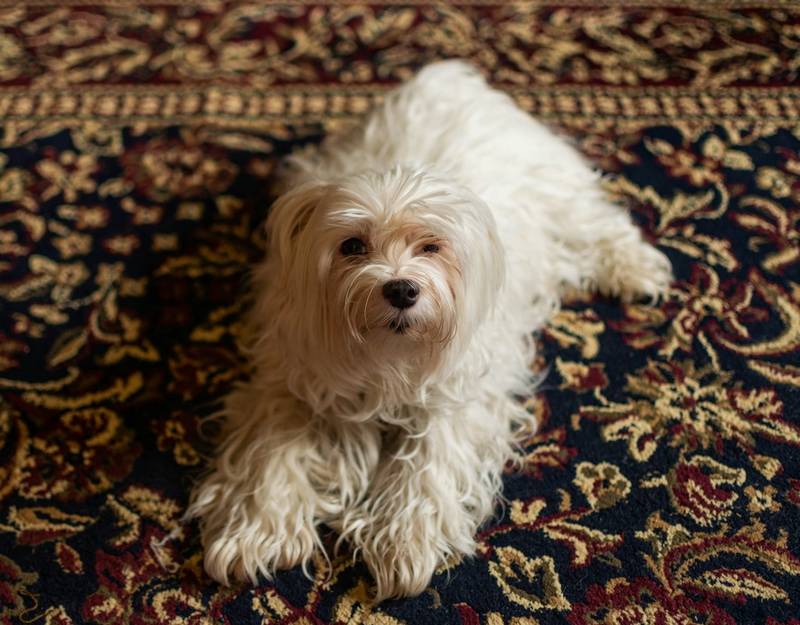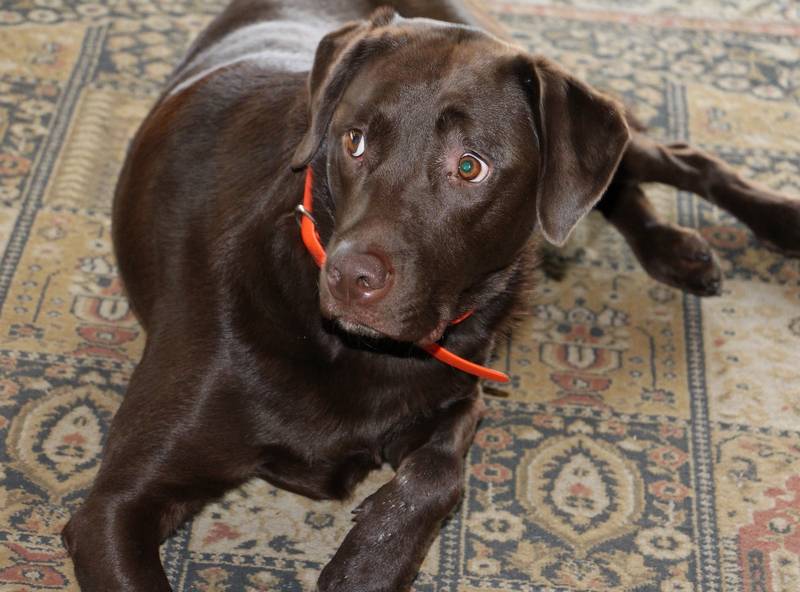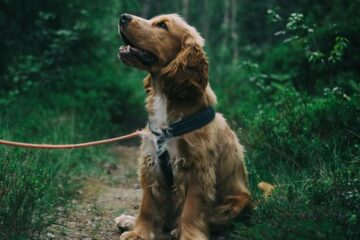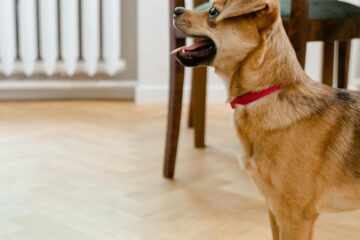Old Dog Peeing in House at Night: What’s Happening + What to Do!
If you’ve noticed your old dog peeing in the house at night, you might be feeling frustrated, concerned, and even a little helpless. This issue is not only inconvenient but can also signal underlying health or behavioral problems that need addressing. Distinguishing between medical and behavioral causes is the first step in finding the right solution.
In this article, we’ll explain why older dogs pee in the house at night and the signs to look for so that you know exactly what you’re dealing with. We’ll also cover if it’s a sudden change and the possibility of incontinence. Once the cause is understood, we’ll teach you how to manage this problem along with tips for cleaning up after accidents. Let’s begin!
Old Dog Peeing in House at Night

Your older dog peeing in the house at night can stem from a variety of causes, including medical conditions, decreased bladder control, changes in sleep patterns, or even anxiety. It’s important to understand the underlying reason to address this issue effectively, which will ensure your dog’s comfort and maintain a clean home environment.
Why Is My Older Dog Peeing in House at Night?
Your older dog is peeing in the house at night for several possible reasons:
- Medical conditions: Urinary tract infections, kidney disease, diabetes, and hormonal imbalances can lead to increased urination.
- Age-related incontinence: As dogs age, their bladder control can diminish, leading to accidents.
- Cognitive Dysfunction Syndrome: Similar to dementia in humans, CDS can cause confusion and disorientation, affecting their bathroom habits.
- Anxiety: Stress or anxiety, possibly from changes in the household or environment, can also lead to nighttime accidents.
Old Dog Pees in House at Night: Medical or Behavioral?
If your old dog pees in the house at night, look for these signs to help you determine the root cause:
- Medical signs: Frequent urination, signs of discomfort while urinating, changes in thirst or appetite, or blood in urine could indicate a medical problem.
- Behavioral signs: Peeing in specific spots repeatedly, doing so when left alone for longer periods than usual, or if it begins occurring after changes in the household’s daily routine.
My Dog Is Old and Pees in the House at Night, What Do I Do?
Addressing nighttime accidents in your old dog involves a combination of strategies:
- Talk with a veterinarian: To rule out or treat any underlying medical conditions.
- Increase bathroom breaks: Ensure your dog has ample opportunities to go outside before bedtime.
- Use pee pads: Place pee pads in accessible areas at night, especially if mobility is an issue.
- Create a comfortable sleeping area: Close to the door if possible, to make nighttime bathroom trips easier.
Your older dog peeing in the house at night is a difficult problem for you both. By understanding the potential causes and making the changes discussed, you can manage the behavior. It’s important to remember that any underlying behavioral issues (curiosity, anxiety, boredom, etc.) that may have been causing this will still be present.
And until you address those, any positive changes you see will only be temporary.
“Well, how do I make these changes last?”
By getting your dog to truly choose to follow your direction, that’s how. I tried many times to write out how you can do that before deciding it made more sense to just link you to the free video series that explains it better than I’d ever be able to.
The series is by a man named Dan who is one of the world’s leading dog obedience trainers. In it, he teaches you how to put an end to things like your old dog peeing in the hose at night and all other misbehavior using his fast and easy-to-follow methods.
In the first video, Dan will reveal to you why the two most common methods of dog training only doom you to failure. You can watch the video now by clicking here. Follow the proven system he’ll show you in his series and you’ll never have to spend another second worrying about why your old dog pees in the house at night ever again!
Senior Dog Peeing in House at Night All of a Sudden

Your senior dog peeing in the house at night all of a sudden can indicate underlying health issues, changes in cognitive function, or even anxiety-related problems. It’s important to understand that this behavior is not deliberate and often signals that your dog needs help. Identifying the cause is the first step towards finding a solution and ensuring your senior dog’s nights are as comfortable and stress-free as possible.
Old Dog Peeing Everywhere Overnight
When an old dog pees everywhere overnight, whether it’s on the carpet or the laminate floor, it’s important to look at the potential reasons behind this change. It could be a sign of medical conditions such as urinary tract infections, kidney disease, or diabetes, all of which are more common in older dogs.
Additionally, age-related decline in bladder control or cognitive function can contribute to this behavior. Observing when and how often the accidents occur can help you figure out the possible causes. Learn the signs to look for and how to address them by going back to the first section now.
Senior Dog With Incontinence: Causes and Treatments
Incontinence in senior dogs can stem from various causes:
- Medical issues: Conditions like urinary tract infections, diabetes, or kidney disease can lead to incontinence.
- Hormonal imbalance: Especially in spayed females, a decrease in estrogen levels can affect bladder control.
- Decreased cognitive function: Cognitive Dysfunction Syndrome can disrupt normal urinary habits.
Treatments vary based on the cause and may include:
- Medications: To treat underlying medical conditions or to strengthen bladder control.
- Dietary changes: To manage weight and support urinary health.
- Supplements: Such as those that support cognitive function in older dogs.
How to Clean Dog Pee Out of Carpet After It’s Set
Cleaning set-in dog pee from the carpet requires a few steps to effectively remove both the stain and odor:
- Blot the area: If the pee is still wet, blot as much as possible with paper towels.
- Apply an enzymatic cleaner: These cleaners break down the urine molecules to eliminate the smell and stain. Follow the product instructions for the best results.
- Let it sit: Allow the cleaner to sit for the recommended time before blotting it dry.
- Repeat if necessary: For deep-set stains, multiple treatments may be required.
Here’s a video that will help you get the smell of dog urine out of the carpet:
In summary, a senior dog peeing in the house at night all of a sudden can be a sign of various issues, ranging from medical conditions to age-related changes. Understanding the causes can help in providing the right care and treatment.
You’re probably ready to begin now that you have all of your questions about your old dog peeing in house at night answered, so I’ll let you get started on things. Good luck, and thanks for taking a look at our article “Old Dog Peeing in House at Night: What’s Happening + What to Do!”.





